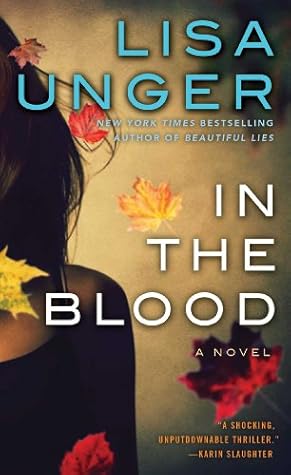More on this book
Community
Kindle Notes & Highlights
Sticks and stones can break your bones, but words can break your heart.
Just because horrible things have happened to you doesn’t mean you can’t have a happy, normal life,
The best way not to call attention to yourself is to agree with what other people say. Even silence attracts attention.
What we think of as our “gut instincts” are really a very complex mosaic of past experiences, deep-seated hopes, fears, desires.
Is the prey complicit in its own demise? Are we not seduced in some small way by the beauty, the grace, even the dangerous soul of the predator?
These children—who display a total lack of empathy, disregard for others, and a severely deficient affect—are those whom certain experts now believe will evolve into psychopaths.
The Diagnostic and Statistical Manual of Mental Disorders.
They call it “profoundly gifted” when your IQ score is over a hundred and eighty.
Every couple starts off loving each other, don’t they? It’s how a relationship ends that really defines its nature.
That’s what they do, psychopaths. They figure out your language, your currency, your needs, your dreams and fears. Then they figure out how to use those things to get what they want from you.
Witnesses say, witnesses say, witnesses say. If I had a dime for every time I’d heard that phrase. People, it seemed, were always watching, taking measure, issuing judgments. They couldn’t wait to start running their mouths off. But did you know that eyewitness testimony is often totally unreliable? The human memory only records events through the filter of its own frame of reference. We try to fit the information we receive into schemas, units of knowledge that we possess about the world that correspond with frequently encountered situations, individuals, ideas, and situations. In other
...more
When someone we love dies suddenly and tragically, it’s like seeing the curvature of the earth. You always knew it was round, a contained sphere floating in space. But when you see the bend in the horizon line, it changes your perspective on everything else.
We hate our parents for having their own lives, don’t we, for making decisions for themselves that don’t seem to take us into account. They’re not people, not really. They’re parents; how dare they live and love and die without us?
When something unspeakable happens, or when you do something unspeakable, it changes you. It takes you apart and reassembles you.
No, I was not afraid of the dead. It was the living that filled me with fear and anxiety.
Rage is the new sex. Bitterness stands in for passion.
Maybe parenthood is a crucible; the intensity of its environment breaks you down to your most essential elements as a couple. Rather than bind, we destabilized.
I think we draw people into our lives. It’s as though we broadcast our deepest needs, and certain people hear the signal somewhere in their own subconscious and heed the call. For better or worse, we attract our teachers, our allies, and sometimes even our nightmares. Some of us have louder signals. Some of us have more sensitive receptors.
Let the patient talk, Therapy 101. They will tell you what is wrong, and they may also already know how to fix it. A good therapist just opens the line of communication, and lets the patient lead the session.
“People who kill themselves generally suffer from severe clinical depression,” I said. “Their reasons for choosing suicide are not always rational. It’s often a chemical imbalance that leads them to the choice.”
Paranoia—the voice in your head that tells you everyone has a secret agenda that he’s running against you. The confusing thing is that sometimes it’s true.
The psyche is a powerful thing, it can bend and obscure reality, turn it into exactly what we desire or expect. How much of the world is just a figment of our imagination, and the imaginations of those around us?
But that’s the thing about mental illness; there’s no such thing as a cookie-cutter diagnosis. We’re all crazy in our own special way. Some of us just have it worse than others.
We are all complicit in our own disasters, aren’t we?
You could tell a lot about a person from his search-engine history.
The weight of lies is a terrible burden. It’s always a relief to lay it down, no matter how horrible the consequences.
That’s the problem with damaged, broken people. We’re unpredictable. We’ll draw you close, then shove you away. It’s nothing personal. Emotions are painful, frightening. It’s so much better to be dull and blank. There’s less risk. Don’t open yourself wide; they can’t hurt you if you don’t.
The gene for violence, for murder, is one that travels through only the male DNA, as far as they know at this time.
The United States is excellent at breeding psychopaths—a country where we reward the individual with a hyperfocus on success at any cost. We reward narcissism—with our social networks and hideous reality television programs. We laud business leaders, even as they abuse workers, rape the environment. In other cultures, where the individual subordinates himself more freely to the needs of family and society, we see fewer psychopaths.
“Anhedonia,” he said. “What does that mean?” I asked, even though I already knew. “It’s the inability to feel pleasure,” he said. “It’s a common side effect of antipsychotic drugs.”
Isn’t it amazing how much power our parents have over us?
What does it mean to forgive someone? It only means that you release the anger, the hatred. It doesn’t mean that you’re saying it’s all right now, or that you’ve forgotten the wrong. It just means that you’ve drained the boil. When you touch it, it doesn’t hurt as much. That’s all.


